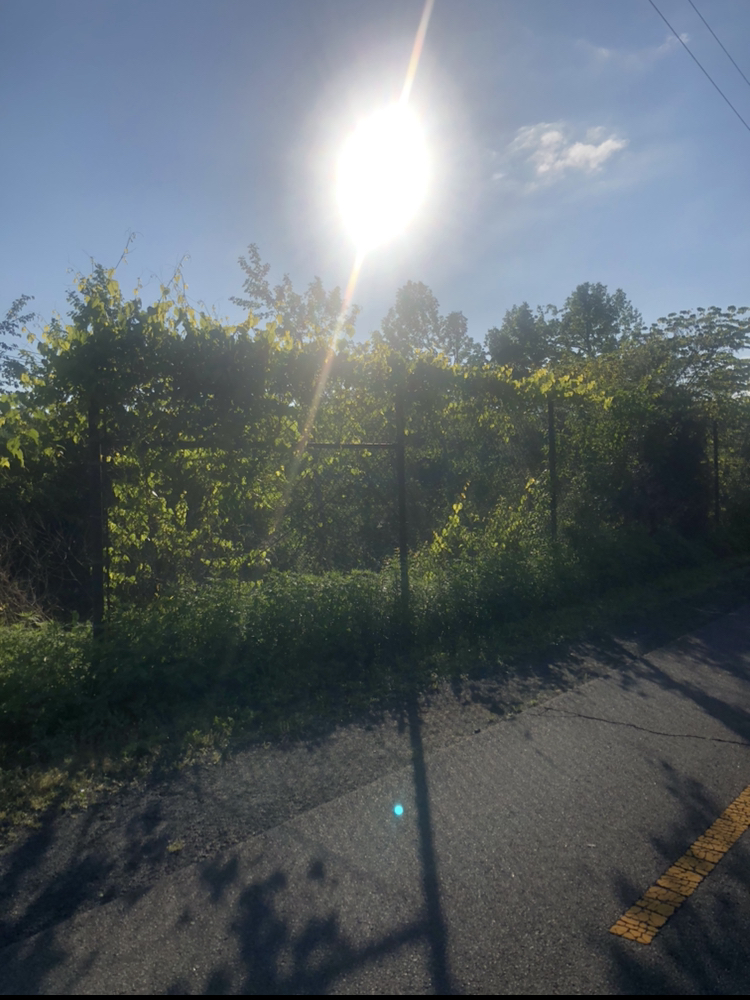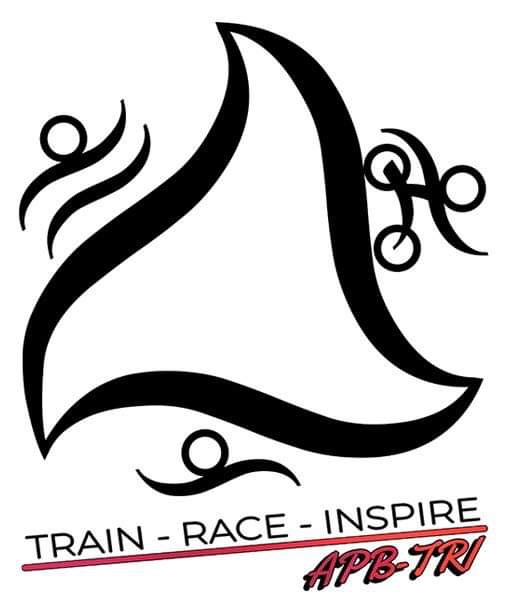
Last Sunday, I left my house early in the morning for a long run and it was already warm and humid. I was planning on running 20 miles, but after 19 miles, I decided it was time to wrap it up and walk home for the last mile. Reason was simple: the sun came out from behind the clouds and I left shaded stretches of the bike path. It suddenly got really hot (for me) and I had a flashback to my Disney Marathon, where I ended up feeling sick for a good long while due to heat on the course. So naturally, me being me, I decided to do some research on working out in the heat. After all, we may have some flexibility when it comes to working out, such as leaving earlier in the morning, driving to the beach with a cool breeze or to a much higher elevation (if we live in an area when that’s an option), or opt for an indoor workout. Sadly, that’s not true for the races – we can’t control the weather on the race day and location is what it is. This leaves us with three choices for the races: don’t register for ones in hot places, don’t show up to the race (yeah, right: you already traveled there and paid for the entrance fees!) or figure out how to deal with it.
☀🌡
According to the Mayo Clinic, there are four stages of heat-related illness: heat cramps, heat syncope and exercise-associated collapse, heat exhaustion and heat stroke. The signs that something is wrong due to heat include muscle cramps, nausea or vomiting, weakness, fatigue, headache, excessive sweating, dizziness or lightheadedness, confusion, irritability, low blood pressure, increased heart rate and visual problems. To be fair, a lot of them are similar to how you feel at the end of a marathon, regardless of the weather 😜. Regardless, you should be paying attention to those symptoms and if you notice them, evaluate the possibility of it being heat-related and treat accordingly.
When it comes to running in the heat, there are three parts to working on avoiding the problems: in the weeks and months before the race, just before the race and during the race itself.
Weeks and months before the race
☀☀☀
In general, if you want to race in hot weather, you need to be ok with hot weather on a regular basis. I find it difficult, as I am ‘northern people’. That’s what I call it: me and all of my ancestors come from Poland and thereabouts, where temperatures don’t really get into 90F. Like ever. 80s are already iffy. AC didn’t exist until relatively recently and even now, unless you custom build your house and specifically get AC, you won’t have it at home. So I am definitely not genetically meant for running in the hot weather and even being outside when it’s how is a challenge for me. I scoured the internet for advice on what to do when I don’t want to run in the heat and the answer was: if you ever plan on racing in the heat, get over it and get used to higher temperatures.
The main takeaway was that one should maintain their acclimatization to heat year-round. One way to do it is to use the sauna regularly. From what I have read, going to he sauna after a workout is particularly beneficial for running on hotter days when the season changes. A Polish runner I follow on Instagram, Dominika Stelmach, recommended also going on vacation to a hot place in the middle of the winter. I have mixed feelings on that, since I don’t have too much PTO (I live in America…) and I love skiing, so in the winter, I want to hit the slopes, not the beach… But: it is an advice from a pro, so I am quoting it. It probably does help.
Start training in warmer weather, preferably up to the weather conditions expected for the race. So if you know that it’s going to be around 80F on the race day, try to do some long runs in the 80F weather. I know: it’s not always possible (see my Disney Marathon in January – it was ski season where I live!). If you can’t go outside to get that kind of conditions, see if you can simulate them indoors. Example: crank up the heat next to your treadmill/stationary bike. If all else fails, you can also wear more clothes than necessary, creating your own warmth ‘situation’. It’s not ideal, but it will do if you have no other options.
When the weather in your town gets hot, don’t avoid it in the training if it mirrors your anticipated race conditions. However, if it is too hot and sunny, try running in the morning or evening and find a shaded path. No reason to suffer if you don’t need to! However, putting in the effort on the hot days will give you gains in endurance, even if you think that you were ‘so slow’. It takes a lot more effort to run in the heat and gains come from effort, not necessarily the speed.
Just before the race
❄💧🕶👒
If you can, get there a couple of days early, preferably two weeks ahead of time (who, not being a pro or a retiree, has time for that???), so you can acclimate. There is an advantage to living in those hot conditions on a day-to-day basis, but two weeks of getting used to the weather really helps. Actually, every day you can get helps. And try not to make your first run in the heat be the race. You know: basically, don’t be me in Florida. My research says that I did pretty much everything wrong in preparation for the race. Not that I could have helped all of it: the day was a weather fluke and I did come from a wintry place. But I digress…
Another thing to do to prepare: make sure you get enough electrolytes in you. I happen to sweat a lot and I tend to sweat out a lot of salt (I am sure everybody wanted to know that 🤢), so I need to make sure to drink enough, including plenty of ports drinks. And skip the alcohol – it dehydrates… Since we are talking about planning ahead, make sure to keep that in mind for the couple of days before the race.
Clothes: pick something light and light-colored, so it protects you from the sun. Remember that dark colors keep the heat! Loose clothing is preferable, but I don’t think it’s much of an option during a triathlon, since you have to swim in it. Unless you put the shirt on when you get out of water? Yeah, that would probably work. I tend to run with a bandanna on my head and I know a few people who like hats. Wrong! Choose a visor. It keeps the sun off your face (that’s important!), while not trapping heat on your head. I will keep that in mind. Although I tend to soak my bandannas, so maybe that helps? But it sure explained why I see Ironman visors, but not hats.
Please use sunscreen (something I am notoriously bad at). Long story short: sunburns make it harder for your body to get rid of heat. Obviously, there is more science behind it, but I am not into the details right now… All I care about is how to avoid overheating.
This last piece of advice came as a bit of surprise to me. You know how we are always told to warm up properly? Apparently before a race, you should cool yourself down as much as you can. Your core will keep getting hotter as you run (or bike), but your starting point will be much lower. I saw three ways talked about: ice vest (I am pretty sure that costs money – so only if you think it’s worth it and you race in heat often enough to justify the expense), put wet towel on your neck (I can probably do this… or maybe like a paper towel? 😉) or drink/eat something really cold. So like an ice pop or frozen sports drink. I think I can manage that last one the best. That’s easy.
During the race
💧💧💧
Congrats! You made it to the starting line (and you are probably questioning your sanity if it’s already hot and you are sweating before even starting to run)! Now you need to survive all the miles in the race. First piece of advice: run/ride slower. I even found somewhere conversion program for how much to slow down. For training, it’s the effort that counts, so you are still going to make gains. Focus on the effort, not the pace. During the race, you may not end up with time you hoped, but isn’t it better to finish rather than hurting yourself? I would say so. I was once looking up a marathon in Hawaii and my main takeaway from the website was ‘this is not a place to PR! Make sure you don’t hurt yourself!’
The other important thing is to keep replenishing water and electrolytes you are losing. Different people lose those at different rate (I happen to sweat a lot and lose a lot of salt while doing it, but it may not be the case for you). The more often you can do it, the better. It’s preferable to drink small amounts more frequently than getting larger drinks less often. If your stomach feels full, listen to it, too – it is possible to overhydrate (although that’s a whole another subject and possible future post).
And here is the solution most of us thinks of: squirt some water on yourself. Advice from a friend (learned the hard way by him): before you pour water you grabbed at a water station on the course, make sure it’s not a sport drink 😜. Also, wet towels or sponges work. When they get hot, you can always shake them out and let them cool down a bit. Speaking from personal experience: pouring cold water on your back feels amazing!
So you did overheat. Now what?
🚑🚿🛁🍦
Once you are done with your workout/race in hot weather, you need to make sure that your core temperature gets back down. If you are feeling sick, seek medical attention. At the races, it’s easy to go over to a medic and have them take a look at you. It may be a good idea, just in case. If you are seriously dehydrated, they can give you IV fluids. Not only will that re-hydrate you, it will drop your core temperature. I think that anybody who ever had an IV can recall that you start feeling really cold. That’s because IV fluids have lower temperature than your body.
I hope you are not doing so badly that you need medical attention and can take care of it yourself. But if you are not feeling well, you should have somebody hang out with you. Overheating compromises your cognitive abilities, so you may not be the best judge of your own well-being.
First of all: beer is not a good idea! Alcohol dehydrates! However, water and sport drinks are great. Especially if they are cold. Eating ice cream, slushies or just pieces of ice will help you cool down as well.
And leaving best for last: cold shower or bath! Let’s face it, if you were just doing some heavy physical activity in the heat, you need to wash off anyway 😉
Stay cool and take care of your body this summer!
